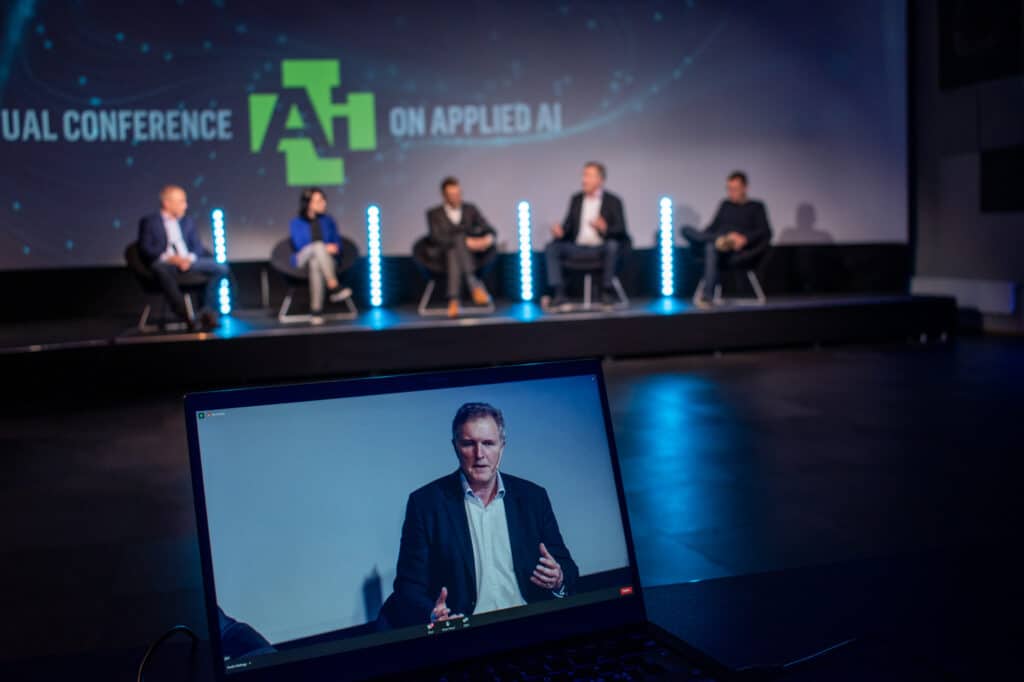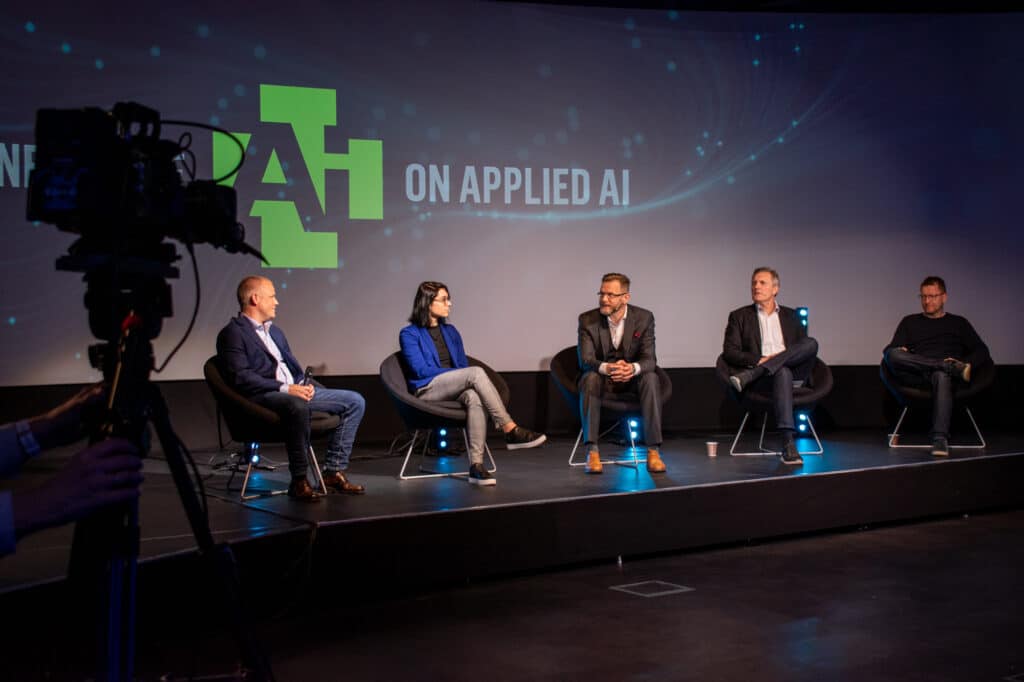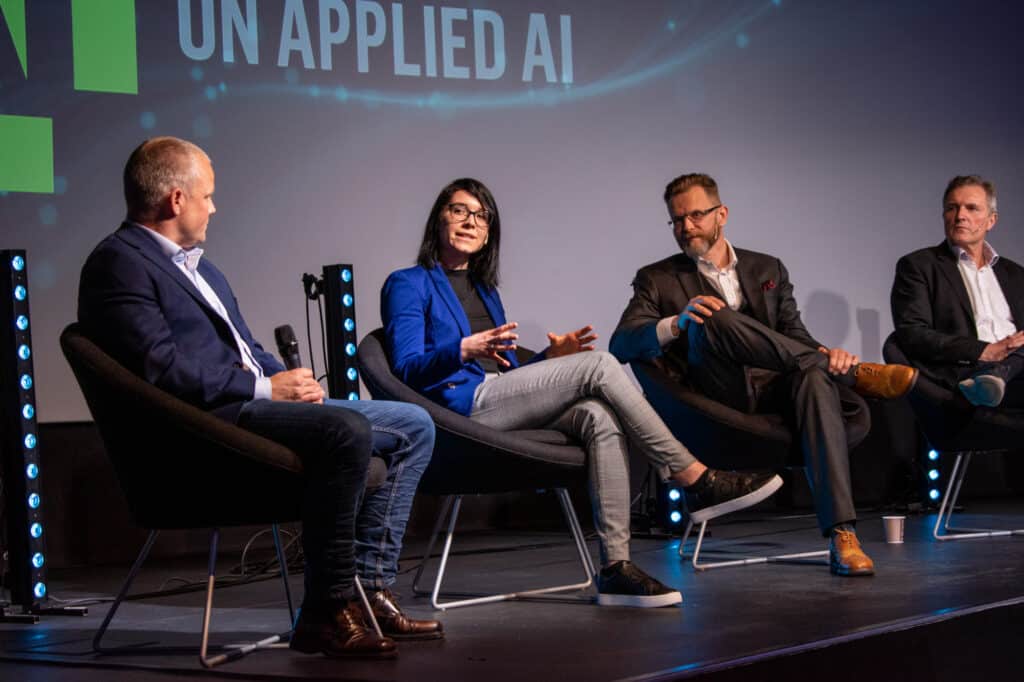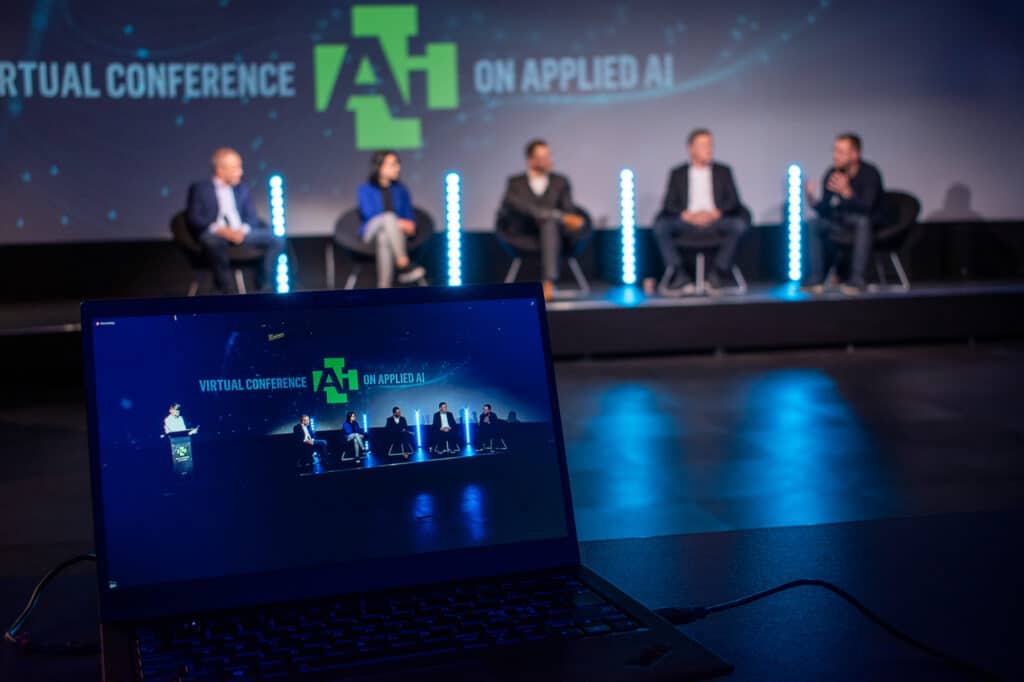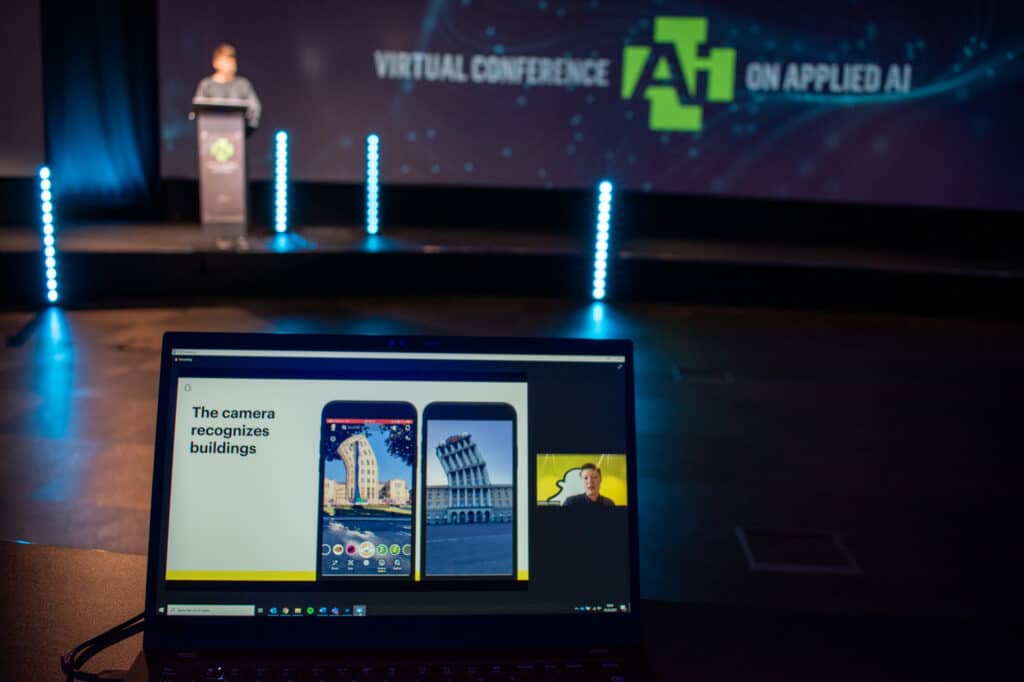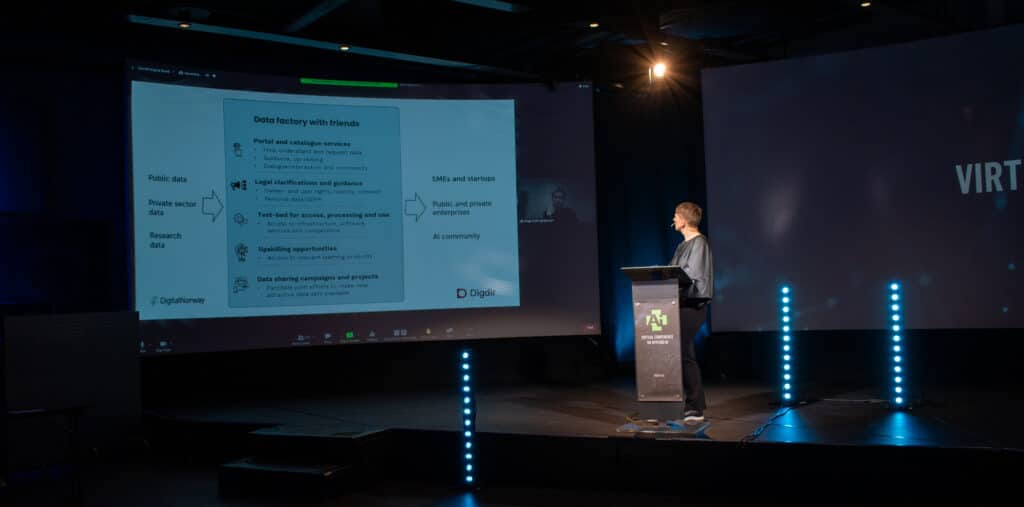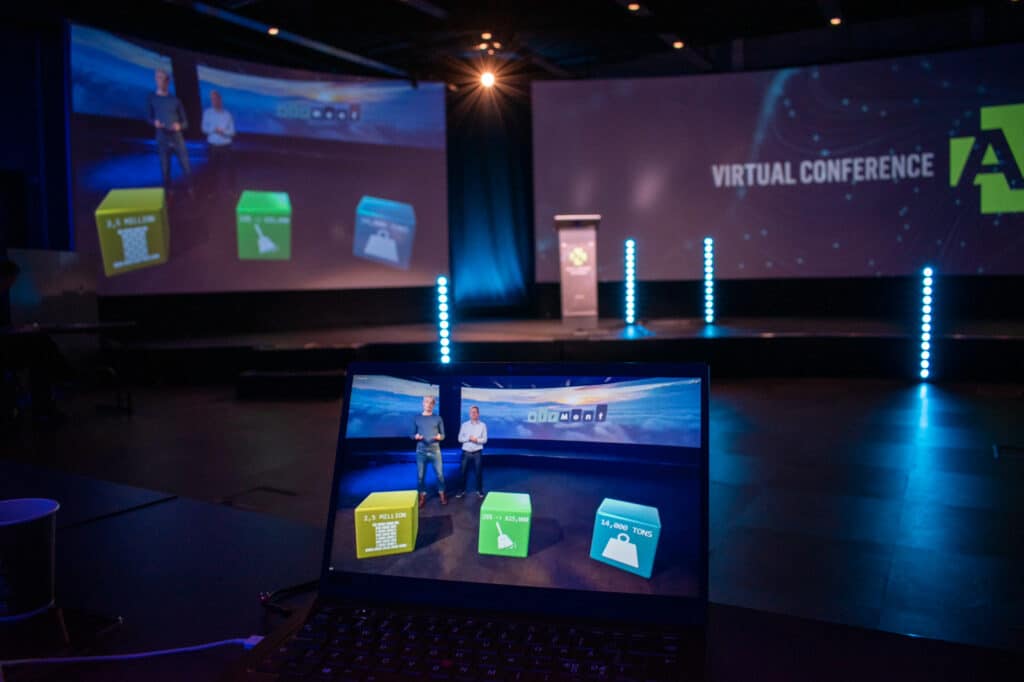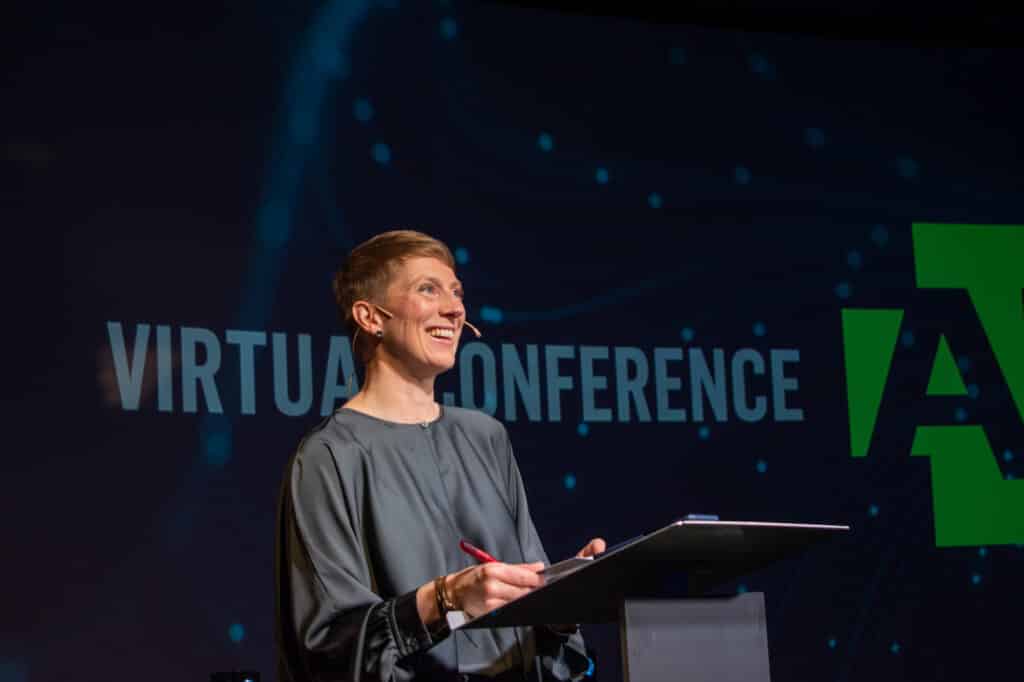When AI+ 2021 was held on Wednesday and Thursday last week, it was with a varied and highly relevant program full of quality speakers. First up was Norway’s Prime Minister.
By Mari Kristine Buckholm, 25 May 2021
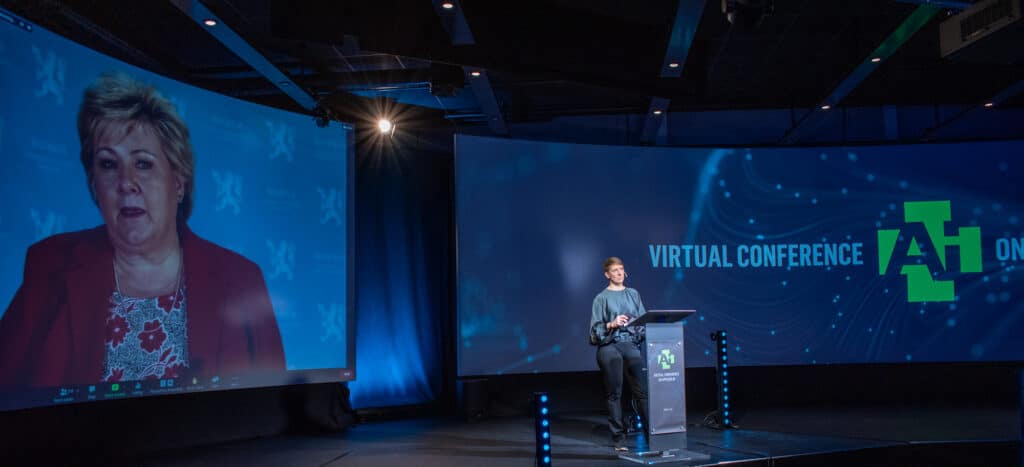
“Data and artificial intelligence will be important for solving the challenges of the future. Therefore, I am pleased that this ambitious conference can be held even if we are in the midst of a pandemic. But AI is also important to combat the pandemic. Over the next two days, you will discuss topics that will shape society in the years to come. I hope you get an interesting and productive conference!”
This is what the Prime Minister of Norway, Erna Solberg, told participants from both Norway and abroad when she opened AI+ 2021 on Wednesday morning.
Changed view of AI
The conference was organized for the second time on 19 and 20 May and the goal was to offer both Norwegian and international environments and companies a competence and collaboration arena within applied artificial intelligence (AI), which will lay a solid foundation for succeeding with data-driven economy and innovation in the future.
The digital event was broadcast from the Simulation Centre in Halden and led by journalist, meeting leader and writer, Ruth Astrid Sæter.
“I have to say that being allowed to lead AI+ 2021 has been incredibly instructive. I knew very little about applied artificial intelligence before this. Now I have learned a little more, and I also see that there are many areas that need to work more together – both to accelerate development, but also to make sure that all the important considerations are taken,” Sæter comments after the end of the conference.
This year’s conference host admits her views on what artificial intelligence is and how the technology can be used have changed after hearing varied presentations from universities, research firms, big tech companies and small startups over the course of two days.
“That notion of ‘God, are we letting the machines take over?’ is not there as much anymore. I’m excited about when the algorithms get so smart that they’ve detected everything, what kind of acceleration will we see?”, she asks.
“Clean air for everyone”
Business developer at the startup AirMont, Ole Gabrielsen, was among the companies that pitched their solution and use of artificial intelligence for the digital audience. In addition, he participated in the panel debate on day 2.
“The conference provides the opportunity to make contacts. Since it is digital, it gets a little harder, but you are also inspired to check out new things. When you hear what Oda (formerly Kolonial.no) says about their experiences and what the Norwegian School of Economics says about innovation models, it is very useful input for us. As a new startup, we do not get this anywhere else. It is crucial to be part of such an environment early on,” says Gabrielsen.
AirMont’s vision is “clean air for everyone” and the company aims to ensure better air quality using artificial intelligence and sensor technology. The first product on the market is chimney sensors with a built-in digital system that will be rolled out to all households with chimneys in Halden municipality during the fall of 2021.
“The sensors use artificial intelligence to correlate research results and historical data. When collecting many datasets, such as the Norwegian Public Roads Administration, the municipality, the EU, weather and traffic data and sensor data from us, this data can be used to predict poor air quality using artificial intelligence. This would be impossible for a human being to do,” explains the business developer.
In the long term, Gabrielsen envisions that such predictions can be used to encourage residents use their fireplaces less during certain periods of time, as it is often smoke from chimneys that is the main cause of poor air quality in cities. An incentive may be, for example, that the inhabitants who do not use their fireplace, which will be possible to keep track of with the help of sensors, can get half price on the electricity during the relevant time period.
Microsoft offers aid
On the way there, however, a startup needs help, both with financing, good advice, and follow-up. Here is where giant Microsoft enters the picture. The technology company has massive expertise within digital systems and was broadly represented at the conference, both as a sponsor and partner in Cluster for Applied AI, but also as speaker and participant in the panel debate.
Izabela Hawrylko is Data&AI Solution Specialist at Microsoft and Microsoft Norway Startup Team Lead. She was Microsoft’s representative in the panel debate.
“What is most important for us is different perspectives. Being here and hearing from startups like AirMont allows us to think about how Microsoft can assist with resources and funding. By the size we have, I believe there is a responsibility to support businesses and academia. That’s why it’s important to attend conferences like this, talk to people and listen to what kind of challenges they have,” says Hawrylko.
She is concerned that there are too many people talking about artificial intelligence and wanting to test it out in their organization, without being willing to make the organizational changes required to succeed with new technological solutions.
“Technology is important, but you also need to be able to use the technology and change your organization so that you get the most out of the technology. There is no meaning in acquiring an innovative solution if you do not know how to use it or have a plan to use it. We see that artificial intelligence has been hyped up and used as a buzzword, and I hope that more companies eventually understand that one must also have a plan to adopt it,” she emphasizes.
Even bigger next year
Two of the initiators behind AI+ are Knut Johansen, CEO of eSmart Systems, and Dr. Tomas Nordlander, Research Director at the Department of Energy Technology (IFE). They were both very pleased with the implementation of this year’s digital conference and look forward to next year – which will hopefully be a physical event.
“AI+ has become a conference at the top international level. Those who participate get very good and useful input,” says Johansen.
“During the first conference this last fall, we learned a lot and we have had another conference now that have gone very well, but there is still a lot to improve. Hopefully, the third conference will be a physical event that is even bigger, and then we will have had two training rounds,” adds Nordlander with a smile.
AI+ was organized by Smart Innovation Norway, eSmart Systems, Institute for Energy Technology (IFE) and Halden Municipality, in collaboration with Cluster for Applied AI.
